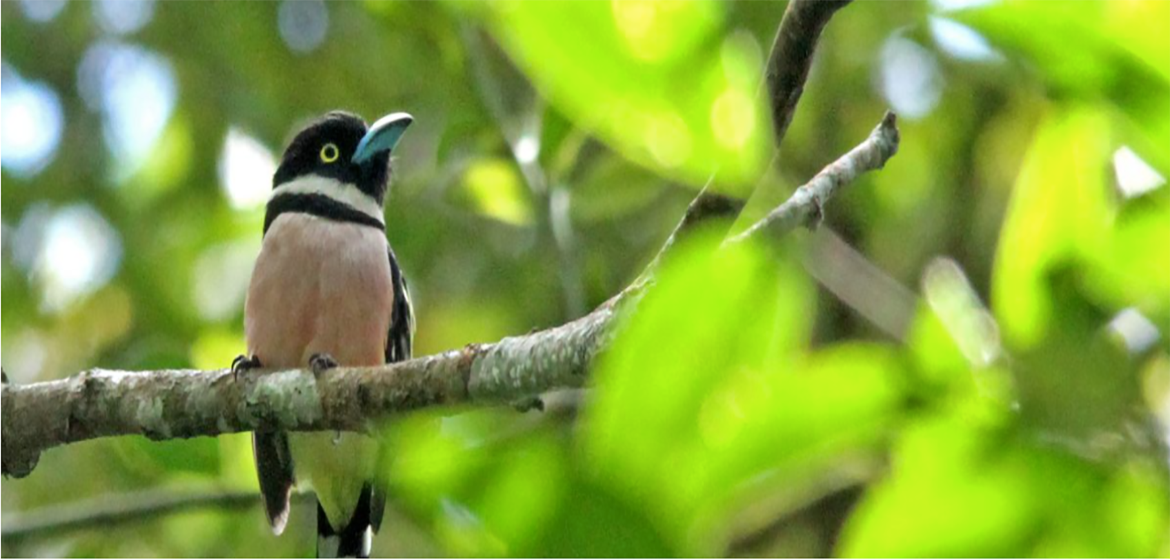By Basten Gokkon
- More than 25,000 birds from nearly 150 species, including those on the brink of extinction, were found for sale at hundreds of shops across Indonesian Borneo, according to a recent report.
- The report is said to be the first to provide data on the trade in Kalimantan, which is increasingly being targeted by trappers and traders who have decimated bird populations in Java and Sumatra.
- The researchers are calling for more surveys on bird populations in the wild and stronger law enforcement to protect endangered species.
JAKARTA — Tens of thousands of birds, many of them protected species on the brink of extinction, are being openly traded in Indonesian Borneo, in the first clear picture to emerge of the extent of the practice there.
Nearly 200 stores across the region, known as Kalimantan, were found to be selling more than 25,000 birds from 148 species, according to multiple periodic field surveys carried out by the conservation group Planet Indonesia between July 2015 and February 2017.
“This is the first data that we know of about the wild bird trade from Kalimantan,” said Adam Miller, the group’s executive director, in a statement announcing the findings.
Some of the species discovered for sale include the Bali myna (Leucopsar rothschildi) and the black-winged myna (Acridotheres melanopterus), both of which are critically endangered; the straw-headed bulbul (Pycnonotus zeylanicus), an endangered species; and the greater green leafbird (Chloropsis sonnerati), classified as vulnerable.

Miller said his team’s findings uncovered just “a fraction of the picture” of the true extent of the wild bird trade in rural Indonesia. The report, published in October, was also aimed at identifying the supply chain and the stakeholders in the practice, he added.
“It is imperative that we gain an understanding of the wild bird trade in other regions of Indonesia, particularly in areas where species are sources as populations in Java have been largely depleted, forcing trappers to move to forests on the other islands in Indonesia,” Miller said.
Previous studies on the bird trade have exposed the rampant markets in urban centers on the islands of Java and Sumatra. A 2005 report estimated that throughout the two islands.
Birdkeeping is a popular pastime among Indonesians, particularly Javanese, for the most part because it signifies status and is thought to promote peace of mind. Songbirds are also prized for use in contests, which have spawned thriving networks of clubs, online forums and blogs.
“What we have found is the once Javanese culture of birdkeeping has spread like wildfire across the island of Kalimantan to a number of [local] ethnic groups such as Melayu, Dayak and Chinese,” Miller said.
That influence has been attributed largely to the government’s transmigration program, which sought to relocate residents from densely populated Java to other regions, thereby introducing birdkeeping, among other Javanese customs, to residents of those regions.
“This study reveals that even in rural areas, the size and scale of the wild bird trade raises extreme concern about the future of Indonesia’s avian species,” Miller said.
One of the key concerns is the prospect of local trappers and traders bringing in birds from the Malaysian side of Borneo to meet demand in Kalimantan.
“Then our worst fear has been imagined, that Indonesians songbirds are now on the brink of extinction,” he said. “And worse, no one is talking about it.”

The trade has been allowed to flourish because of a lack of meaningful action on the part of the government and conservation groups, Miller said.
“There are very few NGOs addressing this issue,” he said. “Songbirds aren’t sexy fundraising species, like tigers, elephants, rhinos or other charismatic species that draw most of the attention and donors in Indonesia.”
Ten bird species, or 7.4 percent of the total observed in the surveys, are ostensibly protected under the country’s laws, the Planet Indonesia report said.
“The fact that you can basically go to any major city in Indonesia, walk into a bird market and find hundreds of species for sale, and thousands of individuals. Well, that says it all,” Miller said.
Planet Indonesia has called for more surveys on wild populations, building partnerships with local communities, and addressing the multiple links of the supply chain. The group is also strongly recommending that the Indonesian government include more species in its list of protected birds.
“Addressing the massive songbird trade involving over 250 species and possibly up to a million birds a year, without law enforcement, is going to be tough,” Miller said.
“It is a tragedy, a huge loss of biodiversity, and it is happening with the vast majority of even conservationists and donors showing little to no remorse or interest [in] the issue,” he said.
Source:
Related to SDG 15: Life on land



